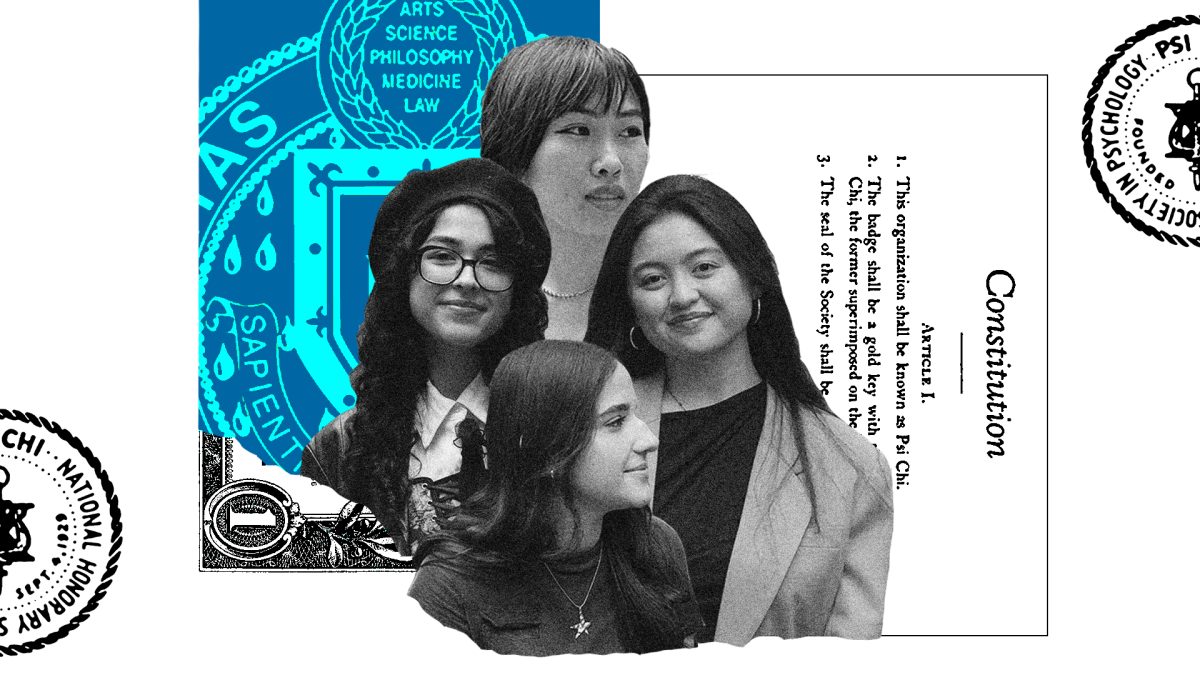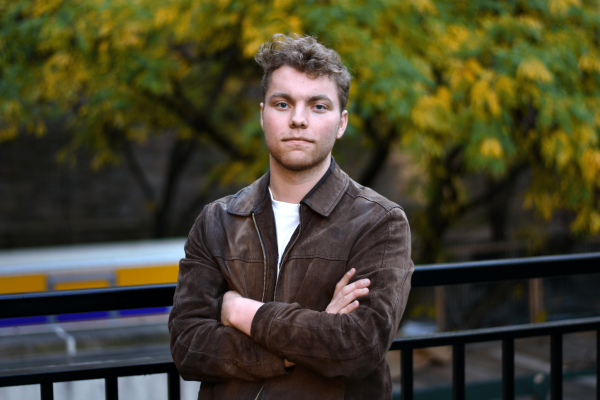At long last, Fordham has reached the end of finals season. For students, this has meant an intensified assignment load, late nights and an ever-present lull of stress.
But the annual carousel of overload often stretches beyond simple exhaustion into feelings of cynicism and failure. It is at that point that the overworked student begins to wrestle with the purpose of their work rather than just the amount of it. It is at that point that the student begins to wonder whether it is all worth it.
We heard this from students again and again. We talked to students about how, at various points in their time at Fordham, they felt they were losing sight of the purpose of their education. They felt their inner flames dwindling. We wanted to understand to what extent cynicism infects our student community. And how other factors — exhaustion and failure — lead to a complex psychosomatic phenomenon known more widely as burnout.
Burnout is not simply the product of an overloaded class schedule. It is an intensely studied phenomenon in a world ruled by achievement and efficiency.
The struggle for achievement and efficiency is the world Isabella Coschignano, Fordham College at Lincoln Center (FCLC) ’26, found herself navigating. Coschignano, majoring in psychology, is studying with the intention of going to law school.
She is like a lot of students at this university: high achievers, hard workers and diligent studiers hoping to fulfill their dreams. Even so, they’re all united by a common experience — sometimes, there’s simply too much work.
Coschignano explained just how much students have on their plates. “Internship stress, working stress and feeling like you need to be involved in every single extracurricular,” she said. All this compounds into the feeling that “everyone around you is so ahead and you’re so far behind; I feel that’s a big thing that students face a lot here.”
“Contrary to other psychological concepts, burnout was not derived from some scholarly theory.” Christina Maslach and Michael P. Leiter in the Handbook of Stress and Health
Burnout is a common and enduring problem for students across the country, studied by scientists and observed by school counselors — the latter of which are formally employed to solve such problems.
There’s scientific literature dedicated to the subject of burnout.
In their chapter in the Handbook of Stress and Health, Christina Maslach and Michael P. Leiter provide a summary of the clinical studies of burnout. Maslach and Leiter are two preeminent scholars on the subject. They wrote the book on it — or, rather, they’ve co-written more than half a dozen.
They explain that “contrary to other psychological concepts, burnout was not derived from some scholarly theory.” Instead, Maslach and Leiter point out, scientific studies have been playing catch-up, trying to pin down definitions of a readily-expressed feeling. The word itself is “evocative,” Maslach and Leiter write — the simple phrase makes one think of an extinguished candle, unable to sustain a flame.
“If both your body and your mind can’t work together, that’s the state of being burned out.” Saptarshi Banik, FCLC ’28
Fordham students expressed a similar feeling when describing the phenomenon themselves, one that felt as if their wicks were on borrowed time.
Recent alumnus Nick Kosmachev, Gabelli School of Business at Lincoln Center ’24, explained that burnout is “when you’re doing something you like, but then at some point, you kind of feel like you don’t like it anymore.”
Saptarshi Banik, FCLC ’28, said it was not simply depleted enthusiasm. “Burnout isn’t just a mentality — it’s more of a physical state too,” she said. “If both your body and your mind can’t work together, that’s the state of being burned out.”
Coschignano also said that “a big part of burnout is neglecting taking care of yourself.” Burnout, then, seems to be the result of a spiral into unhealthy habits as a result of overwork.
Coschignano explained how work can wreak havoc on the body. “I’ve always wanted to get ahead as quick as I could,” she said. “But I feel like you’re always facing more and more pressure just to get involved and have as much on your resumé that you can have.”
But it’s not only physical exhaustion.
Maslach and Leiter insist that burnout has a critical mental element: cynicism. Maslach and Leiter refer to this part of the phenomenon as “distancing” because of its ability to separate the worker mentally from her work. Work becomes more than a mental strain. Cynicism makes it not feel worth it.
Another student, Simone Hodge, Fordham College at Rose Hill ’25, talked about the end of the past fall semester and how that dark winter had diminished her motivation.
“I was getting a million assignments at once. I was also really sick. I think it also depends on the season,” she explained. “Just it being dark altogether, and the demands of all my professors that was just like no — I couldn’t do it.”
“At the very start of last semester, I was putting as much work in as I could in doing all my homework early, doing a lot of extra notes. But then towards the end of the semester, it was just the bare minimum needed to pass.” Dean Pallogaudia, FCLC ’27
Dean Pallogaudia, FCLC ’27, explained that the feeling compounds over time. He said that for him, burnout “usually happens toward the end of the semester.”
He highlighted the ineptitude and fleeting nature of motivation in this respect. “At the very start of last semester, I was putting as much work in as I could in doing all my homework early, doing a lot of extra notes, but then towards the end of the semester, it was just the bare minimum needed to pass,” Palloguadia said.
He noted that the key is having the strength to force oneself to keep going. “Motivation is kind of fleeting, and to have the discipline to continue, you need to care more about the class beyond just the credits.”
Palloguadia later added, “you’re always going to have motivation at the start, and then it’s just the discipline to continue, and not everyone has that.”
The need to care “more about the class beyond just the credits,” Palloguadia described, reflects the lack of engagement that Maslach and Leiter highlight in their work. Those feeling burnt-out are not only tired; “they also have lost a psychological connection with their work that has implications for their motivation and their identity.”
Banik also touched on this idea. “Motivation can only take you so far,” she said.
“Even if it’s as small as making myself my favorite tea at the end of the day. It keeps me motivated knowing I have something to look forward to.” Isabella Coschignano, FCLC ’26
When the academic environment begins framing everyday life into a never-ending series of tasks, one may begin to feel as though their activities are leading nowhere.
Banik noted just how paralyzing these effects can be. “I think, for me, when I know I’m burning out or I just feel like I can’t do it, I just don’t,” she said. “I’ll let my professors know that I can’t come in this day or I’ll let my work person know I can’t come in today.”
Banik’s tact may simply be that the only solution is to endure the burnout as it flickers and flares.
Conschignano took a different approach — one that actively sought to thwart burnout altogether. “For me, it’s just remembering to do things that I love,” she explained. “Even if it’s as small as making myself my favorite tea at the end of the day. It keeps me motivated knowing I have something to look forward to.”
Still, the coalescing forces of exhaustion and cynicism still only give a partial picture of burnout.
Maslach and Leiter explain that burnout emerges from three different axes: “an overwhelming exhaustion, feelings of cynicism and detachment from the job, and a sense of ineffectiveness and lack of accomplishment.”
Burnout is the confluence of tiredness, cynicism and failure. This “discouragement,” as Maslach and Leiter call it, works to make the trek back to a full tank of gas even harder.
Burnout, then, has a very convincing story. I’m all out, the candle says. I’m too tired to burn. All my wax is gone. And even if I could burn, I wouldn’t want to. There’s no point in it anyway. And you know what? The candle says. It’s all my fault.
Hodge said that asking for help can sound “like a good idea, but sometimes I’m in the mindset where I feel like reaching out for help would waste time.”
The feeling of failure and discouragement then leads to alienation from the very sources of support that may be able to lift one out of the spiral.
Burnout, then, has a very convincing story. I’m all out, the candle says. I’m too tired to burn. All my wax is gone. And even if I could burn, I wouldn’t want to. There’s no point in it anyway. And you know what? The candle says. It’s all my fault.
In Fordham’s academic environment, that way of thinking can be disastrous. Maslach and Leiter say burnout leads to a “crisis in work-based efficacy expectation.” In other words, when accomplishment reigns as the measure of success, burnout both paralyzes and victim-blames the student all at the same time.
The ordinary student might feel overwhelmed or tired, a reasonable position in higher education environments. They might feel like all this stress doesn’t really accomplish anything — just letters in a gradebook.
Burnout, the master of manipulation that it is, seems to say yes: Yes, it’s all too much, and it really doesn’t matter. Better yet, you’re the one who got yourself into this mess — and the only one who can get yourself out.
It’s easy to understand how this narrative can take hold in academic or other work-based environments.
Even so, there are still voices of hope to help coach students out of fatigue, cynicism and despair.
Burnout, the master of manipulation that it is, seems to say yes. Yes, it’s all too much, and it really doesn’t matter. And better yet, you’re the one who got yourself into this mess. And you’re the only one who can get yourself out.
Jeffrey Ng, director of Fordham’s Office of Counseling and Psychological Services, said, “I think people burnout and become overwhelmed when the demand, and the stressors and the expectations, exceed what their capacities are for navigating — and managing and coping — with all those stressors and demands.”
He also weighed in on the exact typography of the phenomenon itself, agreeing with students and scholars.
“When I think of burnout, whether it pertains to students, to non-students, the word that comes to mind for me is that folks are feeling overwhelmed and exhausted and depleted,” Ng said.
Mary Byrnes, director of Fordham’s Office of Disability Services, said that trying to solve academic burnout might not be possible. But she urged that it’s still a good idea to try, even in small ways.
Bynes finds that simply listening could be the solution that students need. “Even if it’s not necessarily solving their burnout, it’s listening to their burnout and making them feel better in the moment,” she said.
Ng leaned forward in his chair. He posited a solution — one that he said he has been advocating for over the past 15 years: “the practice of self-compassion.”
By that, he said he meant the hard, yet necessary recalibration of the very expectations we hold for ourselves and others.
Ng also emphasized that “social and relational connections and intimacy are protective factors for burnout.”
“I think lending an ear helps,” Byrnes added. “Even if you give someone a little bit of sunshine; a little bit of hope,” that might be enough to help quell the stress of the moment, she explained.
For however insurmountable burnout may feel, those who see it most often say that big solutions can start small. While burnout manipulates and distracts from what’s most important, the seemingly insignificant steps of listening to a friend or having a cup of tea at the end of a stressful day can still be an effective defense.








